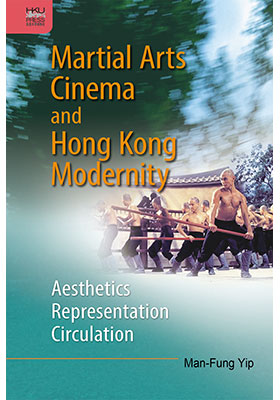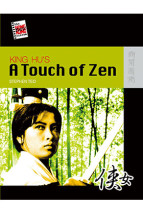Martial Arts Cinema and Hong Kong Modernity
Aesthetics, Representation, Circulation
(武俠電影與香港現代性:美學‧表現‧流傳)
ISBN : 978-988-8390-71-7
March 2017
240 pages, 6″ x 9″, 24 b&w illus.
- HK$480.00
Ebooks
At the core of Martial Arts Cinema and Hong Kong Modernity: Aesthetics, Representation, Circulation is a fascinating paradox: the martial arts film, long regarded as a vehicle of Chinese cultural nationalism, can also be understood as a mass cultural expression of Hong Kong’s modern urban-industrial society. This important and popular genre, Man-Fung Yip argues, articulates the experiential qualities, the competing social subjectivities and gender discourses, as well as the heightened circulation of capital, people, goods, information, and technologies in Hong Kong of the 1960s and 1970s. In addition to providing a novel conceptual framework for the study of Hong Kong martial arts cinema and shedding light on the nexus between social change and cultural/aesthetic form, this book offers perceptive analyses of individual films, including not only the canonical works of King Hu, Chang Cheh, and Bruce Lee, but also many lesser-known ones by Lau Kar-leung and Chor Yuen, among others, that have not been adequately discussed before. Thoroughly researched and lucidly written, Yip’s stimulating study will ignite debates in new directions for both scholars and fans of Chinese-language martial arts cinema.
“Yip subjects critical clichés to rigorous examination, moving beyond generalized notions of martial arts cinema’s appeal and offering up informed scrutiny of every facet of the genre. He has the ability to encapsulate these films’ particularities with cogent examples and, at the same time, demonstrate a thorough familiarity with the historical context in which this endlessly fascinating genre arose.” —David Desser, professor emeritus, University of Illinois at Urbana-Champaign
“Eschewing a reductive chronology, Yip offers a persuasive, detailed, and sophisticated excavation of martial arts cinema which is read through and in relation to rapid transformation of Hong Kong in the 1960s and 1970s. An exemplar of critical genre study, this book represents a significant contribution to the discipline.” —Yvonne Tasker, professor of film studies and dean of the Faculty of Arts and Humanities, University of East Anglia





